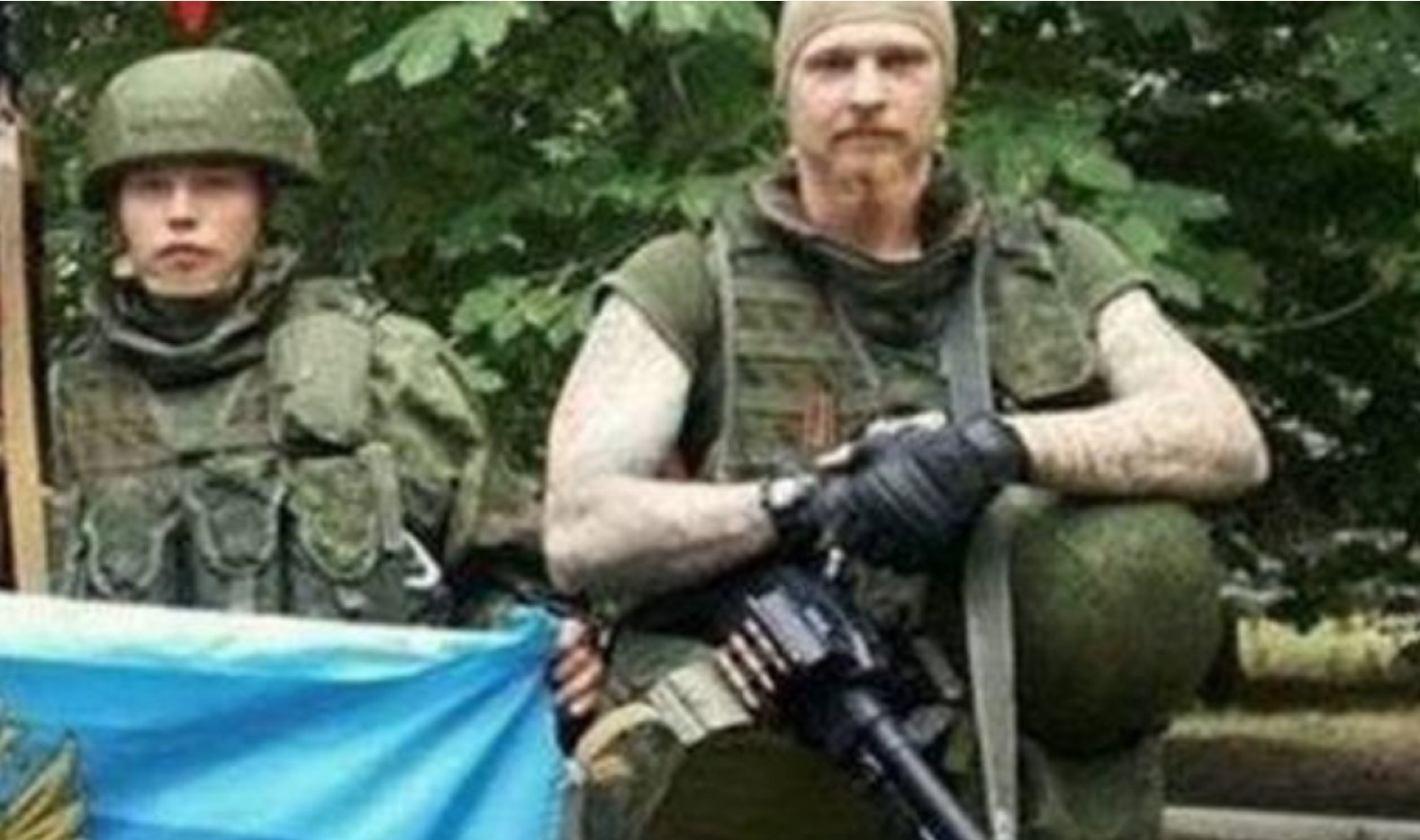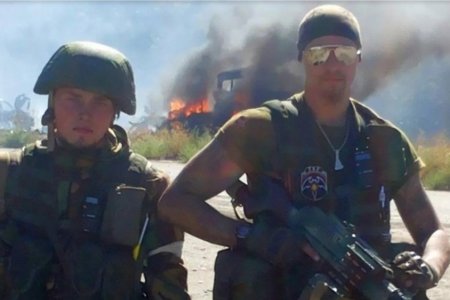
The trial has begun in Finland of Yan Petrovsky, who is referred to during the trial by the name he used to enter Finland, Voislav Torden, over alleged war crimes committed in Ukraine in 2014. The public prosecutor will be demanding a life sentence in what is the first such trial for international crimes in Ukraine under Finnish legislation. Although the evidence against Petrovsky / Torden includes videos which he himself made at the time, he is denying all the charges, including, seemingly, his neo-Nazi views.
The first hearing was held on 5 December 2024 at the Helsinki District Court amid tight security. Journalists followed the proceedings from a separate room. Finland’s prosecutor has charged Petrovsky / Torden over five war crimes over the killing of 22 Ukrainian soldiers and serious wounding of four others in a treacherous ambush on 5 September 2014. The crimes are of using the flag of the opposing side to carry out an ambush; the killing and maiming of wounded soldiers; desecration of the honour of a slain soldier; and the videoed announced that there would be no mercy against captured Ukrainian defenders. Petrovsky is accused both of direct involvement in the actions, and as the deputy commander of the far-right Rusich military group which carried out the ambush. The ambush was near the city of Shchastia in Luhansk oblast, with the slain defenders members of the Aidar Battalion. Later that same day, Rusich’s victims were paratroopers from the 80th Air Assault Brigade.
The Rusich militants are accused of having tricked the Ukrainians into coming up to a checkpoint by flying the Ukrainian flag over it. The Ukrainian defenders from the Aidar Battalion, did not know that Rusich had taken over the checkpoint, and had no way of anticipating the ambush. Petrovsky and his men opened fire at the two vehicles, which they also destroyed by firing a Shmel missile.
This was a deliberate ambush, the prosecutor stressed, stating that it is prohibited under international law and rules of warfare to use the flag of the opposing side to set such traps.
22 members of the Aidar Battalion were killed, and another four men seriously wounded. Petrovsky / Torden and his subordinates are also accused of having killed the soldiers who were gravely injured. The investigators believe that at least four men were killed in this way.
Petrovsky / Torden is also accused of having maimed one gravely wounded Ukrainian soldier by carving the Rusich unit’s emblem onto the man’s cheek. The prosecutor has charged him in addition with desecrating a slain soldier’s memory by posing by his body and circulating this on the Internet. He is also alleged to have made and circulated similar photos with his neo-Nazi comrade and commander of Rusich gloating over the dead man.
The final charge appears to be over at least two public statements that Rusch would not take prisoners, on 26 September 2014, and on 10 June 2015.
There are many videos on the Internet, including one on a Russian broadcast where Petrovsky / Torden says that “the enemy must be destroyed and annihilated”. As well as video footage, there are also witnesses, including one of the men whose injuries were less serious, and who was therefore ‘allowed to live’, in order to be used in exchanges of prisoners. He did not know Petrovsky, but was able to identify him through his very distinctive tattoos, and also noted the specific machine gun that Petrovsky was known to use.
Petrovsky / Torden denies all the charges and claims that he was in the area filming a propaganda recruitment video.
He and is lawyer, Heikki Lampela, are also claiming that Petrovsky was not the deputy commander of Rusich, although there is considerable evidence of his position. They assert that Rusich is not a neo-Nazi group, and that they simply believe that all Slavic groups are equal. Lampela does not appear to have been asked why, if that is the case, they came to Ukraine to kill Ukrainians. The defence is asserting that Petrovsky went to the so-called ‘Luhansk people’s republic’ to “prevent the oppression of Russians living there” and that they are an independent group of volunteers that have nothing to do with the Russian state.
Back in June 2014, Milchakov left no room for doubt that they were being paid for their killing services, and has never concealed his Nazi views. Nor, up till now, had Petrovsky / Torden.
The prosecution dismissed Petrovsky / Torden’s claim that he had simply been making propaganda recruitment videos when, for example, he said on a video that “No mercy will be shown and no prisoners will be taken.” Such threats are in violation of international law, and cannot be brushed off as ‘propaganda’.
The defence are clearly trying to claim that what was happening was a civil war in Ukraine, and that the Russian state was not involved, and that it was not, therefore, an international conflict. This was not the position taken by the court in the Hague during the trial of four men over the downing by a Russian BUK missile of Malaysian airliner MH17. The Finnish prosecutor is likewise adamant that this was n international conflict.
The next hearing is due on 12 December, with Petrovsky / Torden due to give testimony at the end of January 2025.
The trial began almost exactly a year after Finland’s Supreme Court ruled that Voislav Torden, could not be extradited to Ukraine due to the unsatisfactory conditions in Ukrainian penitentiary institutions.
Rusich is believed to have been deployed in Kharkiv oblast following Russia’s full-scale invasion of Ukraine, and the unit was the first on 12 April 2023 to post a horrific video, apparently showing the beheading of a Ukrainian prisoner of war. The caption said that “you’ll be surprised at how many such videos will gradually come to light”. Both Rusich and its co-founders were placed under US and EU sanctions in 2022. This may be the reason why, when Petrovsky was detained by Finnish border guards on 20 July 2023, he was travelling under the name Voislav Torden. Petrovsky claims to be a great ‘Russian patriot’, yet appears to have long lived outside Russia. He was in Norway for a very long and, according to the St Petersburg newspaper Fontanka made a living in Oslo as a tattooer. He was also an active participant in the Norwegian far-right movement, and was detained in 2016 by the Norwegian authorities “for reasons of national security”. It was not clear then whether Ukraine had formally requested his extradition, and at that stage he was simply deported back to Russia.
From reports posted by Graty ; Yle and Iltalehti.


